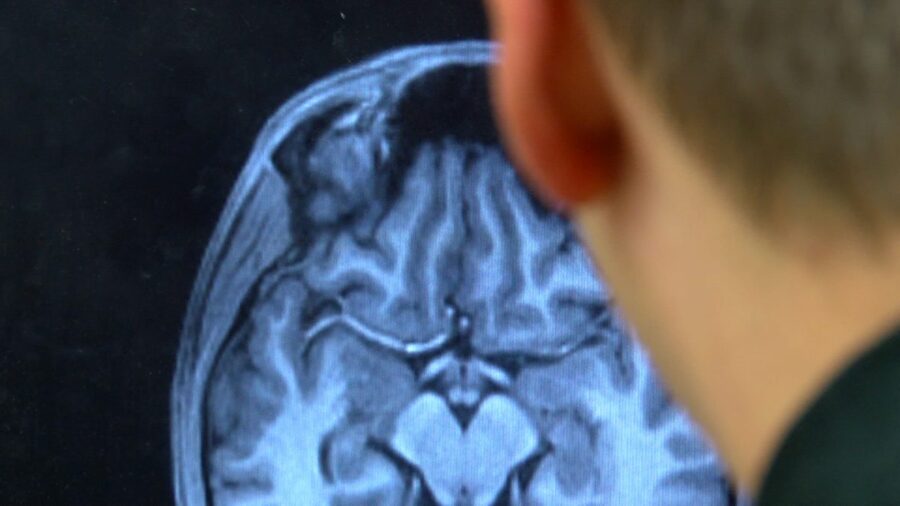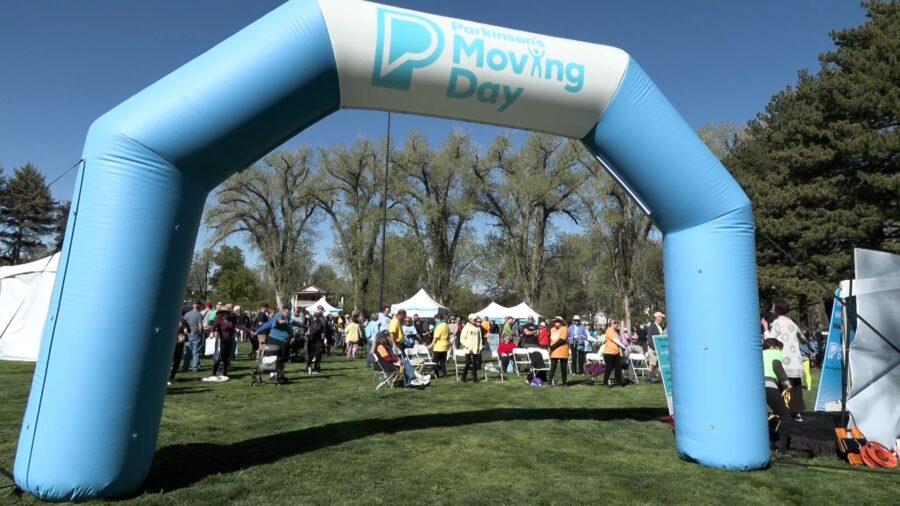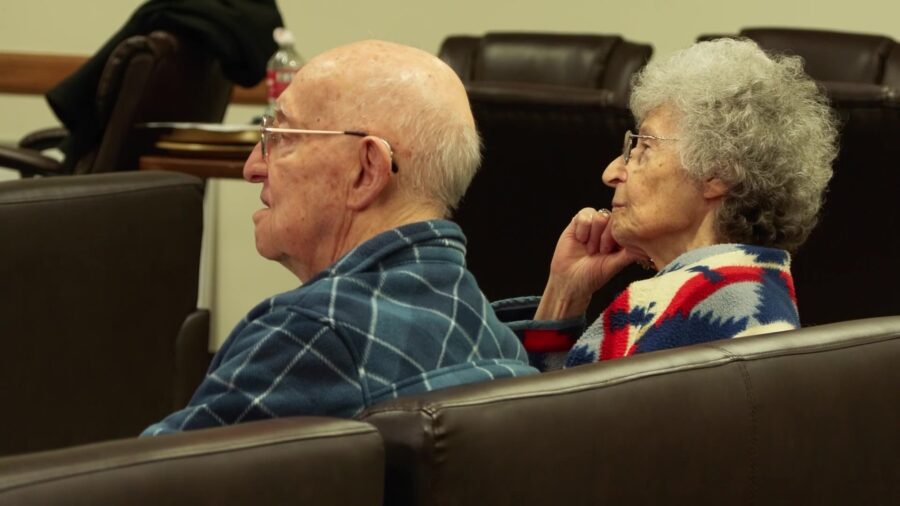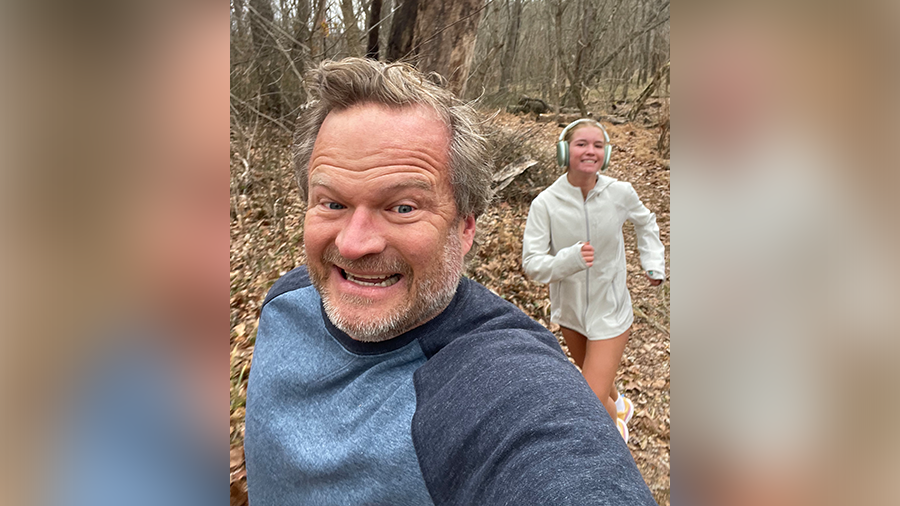Idaho man is recovering from unique triple organ transplant at University of Utah Health
Apr 14, 2023, 8:04 PM
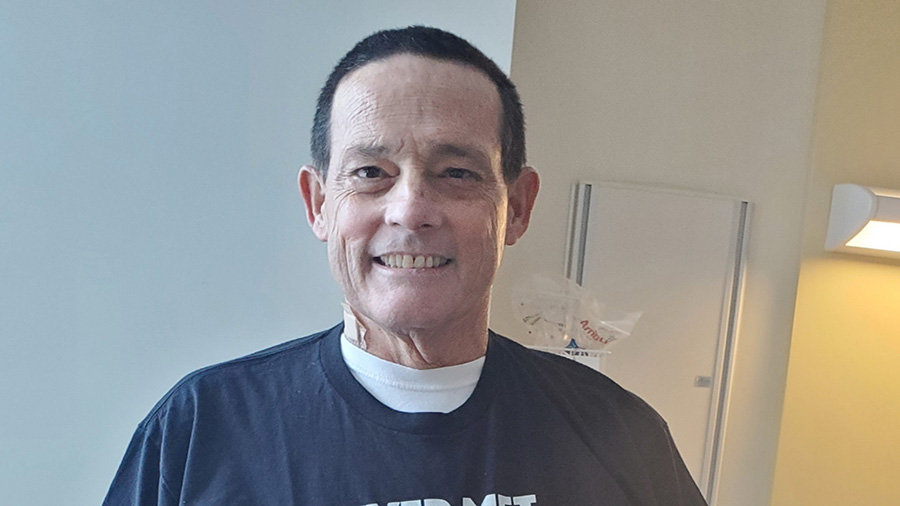
Jim Calentino received a new heart, liver, and kidney during a rare triple organ transplant. (University of Utah Health)
(University of Utah Health)
SALT LAKE CITY — Jim Calentino was in an intensive care unit for almost six weeks waiting for the three organs he needed.
He was admitted to the hospital on Oct. 21, 2022, although he said he felt fine despite the fluid in his lungs. Calentino said he was being stubborn and felt that he could overcome it, but listened to advice to stay and was placed on a machine that took the stress off of the right side of his heart. Then he waited for a donor.
He said when they finally got the call that there were organs available on Dec. 8, it was pretty emotional.
University of Utah Health doctors were able to use an innovative process to transplant organs donated after circulatory death, rather than brain death, to help Calentino more quickly. This is a groundbreaking surgery for U. Health, and the process allows more organs to be available for others on the organ registry.
He received his triple organ transplant, including a heart, liver, and kidney, in December. All of the organs came from the same donor.
Jim Calentino, of Meridian, Idaho, has been married to Elizabeth for 38 years and they have two sons. He said his first cardiac event was in 2000 and about a year later he was given a pacemaker, and he received care for problems in the right side of his heart through 2018 when doctors suggested he would eventually need a heart transplant.
Dr. Craig Selzman, surgical director of the heart transplant program at U. Health, explained that Calentino’s right side of his heart was not functioning, which put pressure on his liver and kidneys, leading them to fail. Eventually, Calentino needed a machine to help the right side of his heart as he waited for a transplant.
“Allowing us to access a whole different set of donors, with those that are donating after circulatory death — it really opened up the door for us,” Selzman said.
Calentino’s surgery, a triple organ transplant, only happens about 10 times each year in the U.S. and Selzman said this is likely the first time it has been done using three organs that were donated after circulatory death.
He said it takes more manpower and different technology and equipment to safely do a transplant after circulatory death. He said there were probably over 500 people involved in the process, including nurses, dietitians, and therapists.
“It’s a big team effort to do this,” he said.
Calentino said the surgery to replace his heart and liver was done Dec. 8, and then the next day he received his new kidney. He said he was amazed coming out of surgery that there was “virtually no pain” — his biggest struggles were cognitive issues and physical therapy.
“The journey was more than what I anticipated. But at the same time, with the medical staff there at the University of Utah, they made it much, much more bearable than what I anticipated as well,” he said.
He said he has been going to cardiac rehab and is feeling his strength come back as he is walking and exercising on his own.
Calentino said it was hard for him prior to his surgery to come to grips with knowing that for his life to continue, another life had to end. Although it is still unsettling to him, he has learned through talking with his priest and family that it is all part of God’s plan.
“I’m just grateful for this opportunity and I want to live my life to the fullest and make the donor and the donor family proud,” he said.
Selzman said one of the main problems transplant doctors have is that there are more people who need organs than there are organs available — especially hearts. He said using donations from circulatory death, rather than brain death, is one of the ways they are seeking to address the issue.
He said about 50% of donors with devastating injuries don’t meet the criteria for brain death and so historically they have not been considered organ donors in the U.S.
He said although there are different techniques used in the transplant, the more significant thing keeping these transplants from happening is philosophy.
Selzman explained that with brain death there are strict criteria: The patient needs to be in a coma, not be able to breathe on their own, and not have primitive reflexes. Patients who do not meet all of those criteria can still have devastating brain injuries, but it is not considered a brain death and typically organ donation is not discussed.
With circulatory death, the heart cannot provide blood to the organs. In these cases, patients and their families agree to withdraw care and sometimes want the opportunity to donate organs, but that has not always been available.
The doctor said the transplantation technique is not new; the first heart transplant which was done in South Africa in 1967 was from a donor with circulatory death, not brain death. In the U.S., likely the first heart transplant after circulatory death occurred four years ago, and Selzman said only a handful of programs have done any transplants after circulatory death. U. Health has done about 10 of these transplants.
Another step that increases the number of organs available is using organs from patients with viral infections, which has been more possible due to improvements in medical therapies and increasing opportunities for living donations.
Dr. Talia Baker, surgical director of liver transplantation at U. Health, said the limited number of organs available is the biggest challenge for transplant surgeons. She said living liver donations, which emerged over the last few decades, take advantage of the fact that the liver regenerates to give more access to liver donations.
She said being a part of developing the process for living liver donations has been a privilege for her.
“We have people coming forward who are offering to give the ultimate gift of life to a loved one, or even someone who they’ve just met through the community or even in an anonymous, non-directed way,” Baker said.
She said the people coming forward as potential liver donors are remarkable.
“Our goal and our mission is really to make sure that all recipients in need with end-stage organ disease are able to benefit from the new life that’s given by a donor organ,” Baker said.
Mark Dixon, director of public education with Donor Connect, said right now there are almost 110,000 people waiting for an organ, and about 1,000 people in Utah. Expanding the number of people who can be organ donors would make a huge difference, he said.
April is Donate Life Month, and Dixon said it is a good opportunity to bring some attention to the need for organ and tissue donors. He said people don’t need to wait until they renew their driver’s license to register, but can do that from the Donor Connect website anytime.
He said when someone ends up in a situation where they may qualify to be an organ donor, it is good to have that decision already made and communicated to family members.
Dixon said although it is a tragic time in a family’s life, an organ or tissue donation can be a silver lining to a death.


